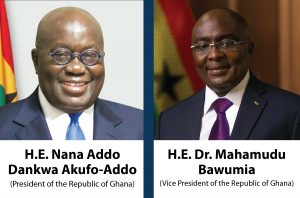The Government of Ghana enacted the Narcotics Drugs (Control, Enforcement and Sanctions) Law, 1990/PNDC Act 236 in 1990 (PNDCL 236). Section 55 of PNDCL 236 provides for the establishment of the Narcotics Control Board (NACOB) now known Narcotics Control Commission (NACOC), Act 1019 was established in November, 1990 as the central coordinating body for dealing with the rising incidence of drug abuses in the country and the threatening dimensions that illicit drug trafficking, had taken globally, sub-regionally and nationally.
Policy Objectives
In line with the United Nations guidelines in tackling the drug problem under the Comprehensive Multidisciplinary Outline (CMO), the Board’s main functions are centered on:
Enforcement and Control
Aimed at reducing narcotic drugs in the society at large, by arrests and prosecution of cultivators, traffickers, peddlers and users and thus control the supply of narcotic drugs to the minimum.
Education and Prevention
Aimed at educating the general public and in particular target groups like the youth, workers, parents, law enforcement personnel on the harmful effects of drug abuse and the dangers inherent in drug abuse; so that those persons who have not taken to drug abuse would be sensitized on the need to lead a drug-free life.
Treatment, Rehabilitation and Social Re-integration
Aimed at encouraging those who have become addicted to drugs seek treatment at appropriate centres. These drug addicts after overcoming the drug addiction would go through a process for rehabilitation and social re-integration.
Coordination
The multi-disciplinary approach to combating the drug problem requires that the Narcotics Control Board liaises with governmental and non-governmental organizations which have anything to do with drug abuse in all aspects and direct all their efforts towards a common objective of fighting the drug war in line with the United Nations Comprehensive Multi-disciplinary Outline (CMO).
International Obligation
On the International front, Ghana is a signatory to the following United Nations Conventions and Protocols on drugs. • The 1961 Single Convention on Narcotic Drugs • The 1971 Convention on Psychotropic Substances • The 1972 Protocol Amending The 1961 Single Convention • The 1988 Convention Against Illicit Trafficking of Narcotic Drugs And Psychotropic Substances.
These Conventions promote co-operation among states so that they may effectively address the various aspects of illicit drug trafficking and psychotropic substances. The Board, therefore, has international obligations as a lead agency in addressing the drug menace.
International Cooperation
The Narcotics Control Board has received various forms of international co-operation geared towards curbing the drug menace in the country. Some known international assistance include; Operation Westbridge with Her Majesty’s Revenue and Customs of UK.
The Westbridge Team in collaboration with NACOB Operatives undertake passenger and baggage profiling at the Kotoka International Airport (K.I.A.) and other training programmes for their Ghanaian Counterparts.
Bilateral co-operation with EU, US, Germany, France, Spain and other countries.
International collaborations with the United Nations Office on Drugs and Crime(UNODC), the International Narcotics Control Board(INCB), the United Nations Development Programme(UNDP) and the World Customs Organization(WCO).
National Coordination Mechanism Besides the international cooperation, Narcotics Control Board also has local collaboration with other stakeholders through Inter Agency Committees to facilitate exchange of information and statistics, and to assist intelligence gathering among various agencies in the country. Currently, there are two of such committees, one for Enforcement and Control and the other for Demand Reduction.
To become a reference drug law enforcement agency of excellence in Africa.
NACOB exists to implement provisions of existing Legislation and International Conventions on narcotics, psychotropic substances and precursor chemicals, through enforcement and control, education and preventive measures, as well as treatment and rehabilitation of drug addicts. This is achieved through a motivated workforce and effective local and international collaboration to fight the drug menace in Ghana efficiently.
Contact
Address: The Ag. Director-General, Narcotics Control Commission, P.O. Box
Location:
Tel: +233 302 761028, 302 761065
Fax: +233-302 761518
Website:
E-mail: info@nacob.gov.gh





